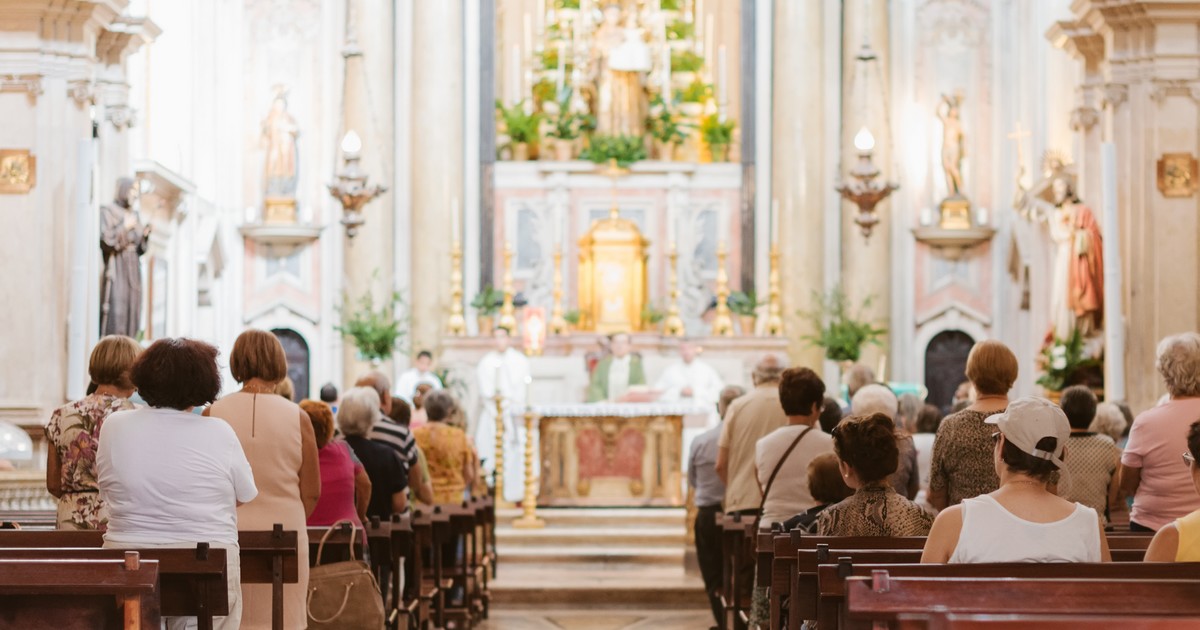A mindless repetition. That is what critics of creeds say about reciting the Creed. Opponents of liturgy call it a vain repetition.
Of course, it is possible to say the Creed mindlessly. People say all kinds of things mindlessly. Sometimes we even say well-intended things like, “I love you,” somewhat mindlessly. We still should say it, even if only for the sake of the better times when we are more engaged in what we are saying.
But with the Creed, there is a pretty simple way of usually being able to confess and pray it meaningfully. This way can be summed up in two words: “For you.”
In the Creed, we confess and pray what the Triune God does “for you.” In each of the three articles, the Creed tells what another Person of the Trinity especially does for you. Luther’s explanation of the Creed in the Small Catechism makes this “for you” perspective clear and simple, and this makes it actually pretty easy to say the Creed meaningfully and mindfully.
Let’s look at each of the articles one at a time.
In the First Article, we confess, “I believe in God the Father Almighty, maker of heaven and earth.” Consider this, why did the Father make heaven and earth? According to Luther’s explanation, He made them because you need them. You need this creation for your body and life, so the Father made it for you. Creation is not a cosmic theory. Creation is the Father’s gift of his creativity to you.
As amazing and engaging as that is, there is more. Because of our fall into sin, we need more than the creation. We need help from our sin. When I recite the First Article, I also have in mind what we recite during public Confession and Absolution at the beginning of Divine Service:
Our help is in the name of the Lord
who made heaven and earth.
I said, I will confess my transgressions to the Lord,
and you forgave the iniquity of my sin.
I need help, but who can help me? There are many who cannot help me. But the Lord is the maker of heaven and earth. He can help me. So I confess my transgressions to the Lord, because He can help, and He forgives the iniquity of my sin.
These two “for yous” can be in mind when we recite the Creed. Thus the Creed is a prayer of thanksgiving. Thank you, my heavenly Father, that you made heaven and earth for me. Thank you, my heavenly Father, that you forgive the iniquity of my sin.
In the Second Article, we confess, “And in Jesus Christ, his only Son, our Lord.” His only Son is who Jesus is to the Father. Our Lord is who Jesus is to us. Luther explains the word Lord unlike the explanations of so many others. This is not a lording over type of lordship. This is a Lord who cares for sinners and acts in a mighty way to redeem us. In this view, our Lord is our Redeemer.
It is simple enough to have in mind when we recite, “our Lord,” that we have faith in Christ that He uses his lordship to redeem us. Then as we proceed through the balance of the Second Article, each thing we recall about Christ is another mighty act of our Lord to redeem. He was conceived by the Holy Spirit of the Virgin Mary. That was a mighty act He did to become our Redeemer. He suffered under Pontius Pilate. That was a mighty act He did to accomplish our redemption. Each of the things we recite here are his mighty acts of redemption, and He did them for you.
In the Third Article, we confess, “I believe in the Holy Spirit.” Again, Luther makes this a matter of what the Holy Spirit does for you. Holiness is not simply an attribute of the Spirit. It is an action. The Spirit is the “holifying” Spirit, the Spirit who makes you holy. He is the sanctifying Spirit. Here, the word ‘Holy” really is a verb, not an adjective. The Third Article is a confession of the mighty works of the Spirit to sanctify you.
How does the Spirit sanctify you? First, He creates the holy Christian church. You need this church, because as Luther explains this article, in this Christian church He daily and richly forgives my sins and the sins of all believers. So the Holy Spirit, to sanctify you by the rich forgiveness of sins, created the Catholic church, the Church of all times and places, the Church of the catholic faith, the universal church.
But how does this get to where you are in your day, place, and time. The Creed continues, “I believe in the communion of saints.” This is your local congregation. What happens there? There you receive the Word and Sacrament ministry that the Augsburg Confession says is instituted so that you may receive the forgiveness of sins that Christ won for you. Here are Baptism, Communion, the reading of the Word, and the preaching of the Word. Here are the chief doctrines of the Word — Law and Gospel — clearly presented in a reliable and sound form of words, the liturgy, and hymns. The Holy Spirit creates this communion of saints for you to deliver to you the sanctifying forgiveness of sins.
And so the Third Article flows immediately to, “I believe in the forgiveness of sins.” The Holy Spirit is the one who calls, gathers, enlightens, and sanctifies you to believe the Gospel, and by faith receive the benefit of the objective fact of Christ’s atonement for the sins of the whole world.
When reciting the Third Article, I see a straight line from the Holy Spirit to the holy Christian church to the communion of saints to me there in the congregation receiving the forgiveness of sins.
Having all these mighty demonstrations of faithfulness for you by the Father, Son, and Holy Spirit from the past and in the present in mind, by reciting them, then you can recite the last matters, the matters about your future, with faith. “I believe in the resurrection of the body, and the life everlasting.” You can say “Amen” to this because you can say “Amen” to all that went before. Yes, the Holy Spirit will do this for you. He will resurrect your body and He will bring you to life everlasting.
The Creed is so rich and so encompassing, that we have only scratched the surface in this little meditation. But the point of this little meditation is that this simple “for you” faith lets you be engaged, mindful, and meaningful when you recite the Creed. Yes, it is possible to have this much in mind as you recite. It lets the Creed be your confession as you say it. And more, it lets the Creed be your prayer, in which you thank Father, Son, and Holy Spirit for all the mighty acts they do for you.




